Kim Jong-nam: Many questions after airport murder
- Published
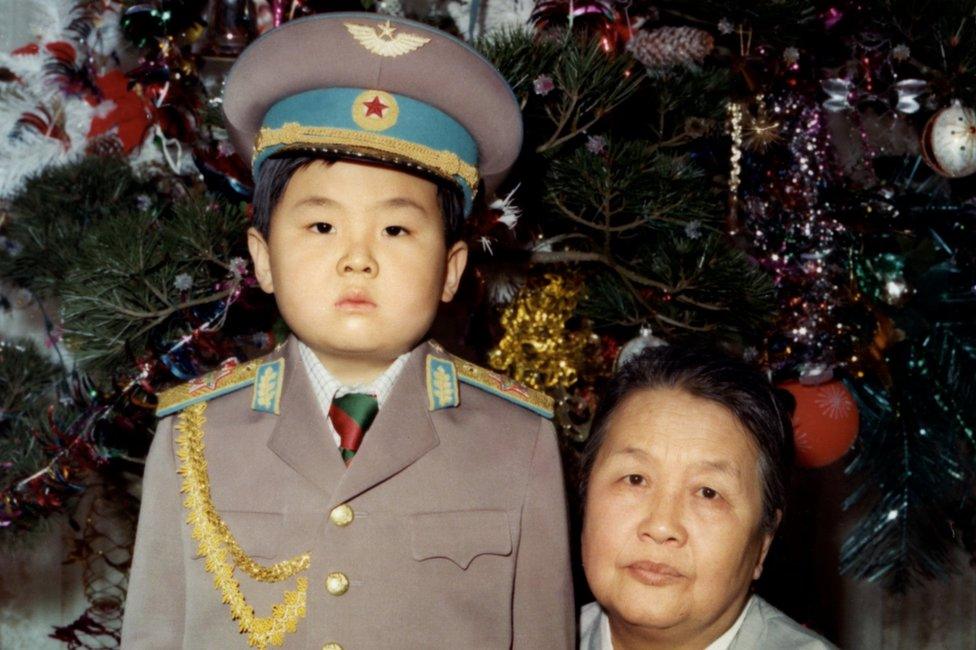
Once doted on by his father, Kim Jong-nam had a long fall from grace as a man
On Monday, the half-brother of North Korean leader Kim Jong-un was killed in Malaysia. The BBC's Karishma Vaswani in Kuala Lumpur dissects a week of mystery and intrigue.
It's been almost a week since the mysterious death of a Korean man at Kuala Lumpur airport and there are still no real answers.
Initially, Malaysia refused to identify the dead man as Kim Jong-nam, saying just that the passport he had on him was under the name Kim Chol.
This despite South Korea's insistence that it was indeed him, killed on the orders of North Korea's brutal regime.
Malaysia finally confirmed for the first time on Wednesday that the dead man was indeed the half-brother of the North Korean leader.
Zahid Hamidi, Malaysia's deputy prime minister, told reporters: "I think he carries two different identities. Probably this [passport] is an undercover document."
Malaysia's cautious handling of this case has been evident from the start. The police have been sparing with their details, with official statements about arrests coming hours after they've already been widely reported.
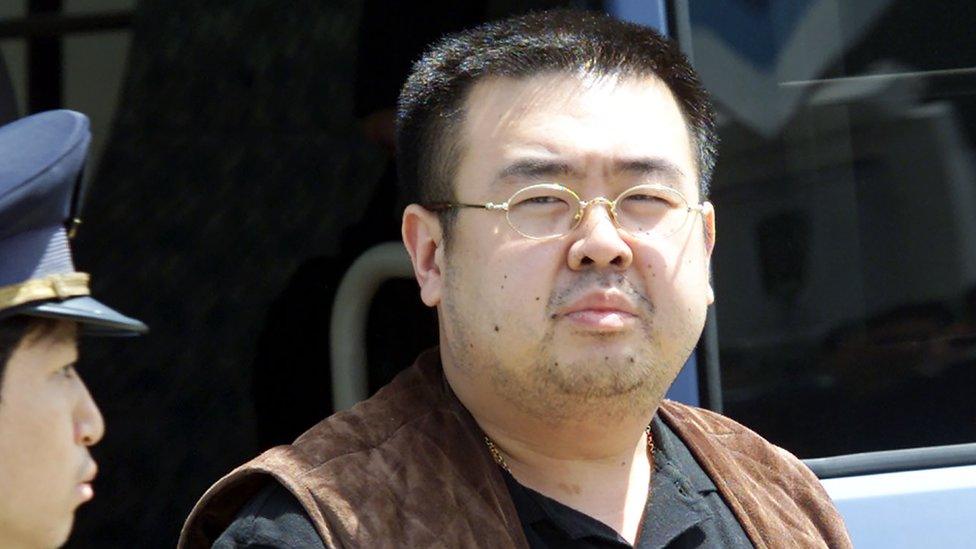
Kim Jong-nam had openly criticised North Korea and called for it to open up
There have also been conflicting and often contradictory accounts from different divisions of the police - national and district - adding more confusion to the story.
But here's what we do know: three people have been arrested so far. Two women are amongst them.
Police say one is Indonesian while the other was carrying a Vietnamese passport.
A third suspect - a Malaysian man police say is the boyfriend of the Indonesian - has also been detained.
Police have detained the suspects for seven days for further questioning.
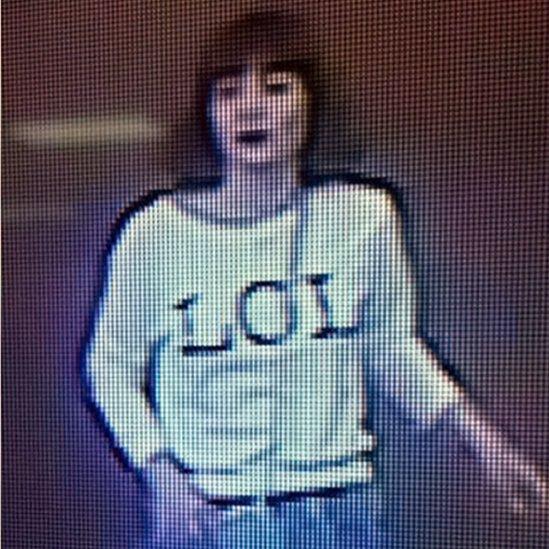
One suspect wore a shirt with "LOL" - "laugh out loud" - written on it
Still, nothing is known about how closely connected they are to the death of Kim Jong-nam, nor indeed why and exactly how he died.
Malaysian police have told me that the two women were both identified from CCTV camera footage captured at the scene of the alleged crime.
I went to the airport terminal where the attack happened to see for myself how it might be possible to get away with murder in broad daylight.
The facts in this case are murky to say the least. But based on police reports, this is what appears to have happened.
On Monday, Kim Jong-nam was about to board a flight. He is thought to have arrived in Kuala Lumpur on 6 February and was on his way back to Macau, where it is believed he lived.
But while he was at the airport, some police reports say at least one woman is thought to have accosted him, and covered his face with a cloth doused in some sort of burning or poisonous chemical.
He then went to the information counter and is thought to have asked for help. Subsequently it appears he was taken to the medical clinic in the airport from where he was sent to hospital, dying en route.
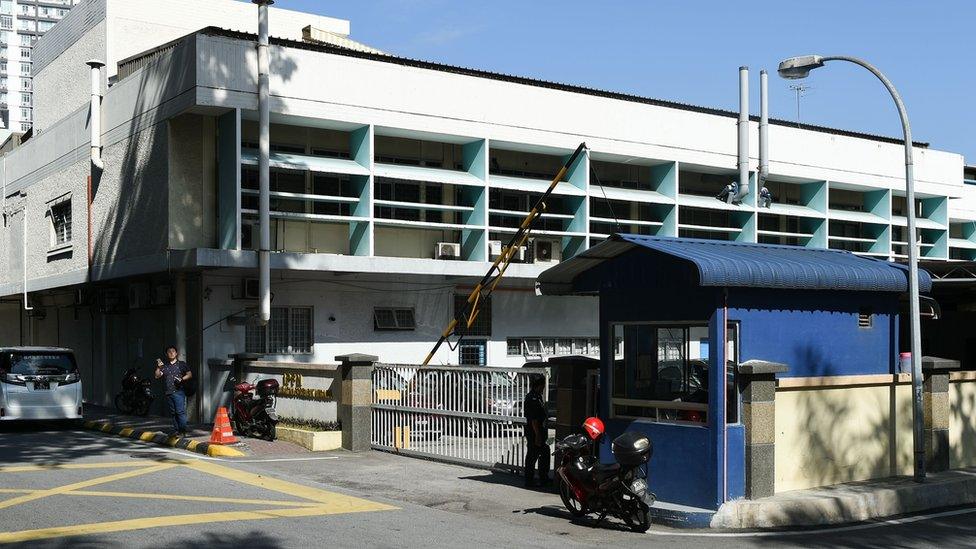
All eyes are now on the forensic department of the hospital analysing Mr Kim's body
But when I spoke to staff at the airport who may have witnessed what happened, no-one was willing to talk to me. At least two people said they had been told by police and their bosses not to speak to the media or divulge any details of what happened.
So there's a lot we still don't know.
What kind of chemical was used in the apparent poisoning? How exactly did he die? The post-mortem examination of his body has been completed, but details have yet to be released to the public.
We also don't know what he was doing in Malaysia, although we understand that he did come here fairly frequently.
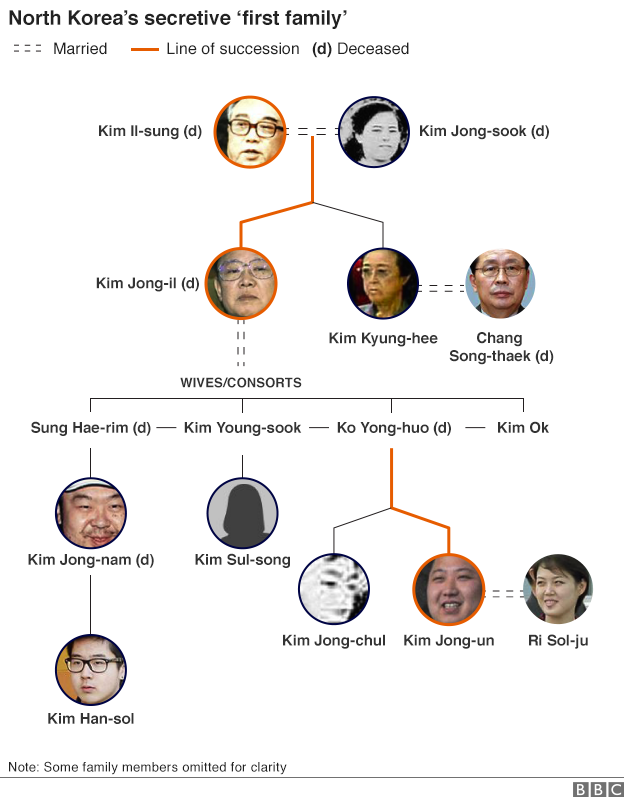
I tried to track some of Kim Jong-nam's old haunts in Kuala Lumpur, which led me to a Korean restaurant in the centre of town. At the restaurant, the mainly Bangladeshi and Burmese staff had no idea who Kim Jong-nam was.
But the owner of the restaurant is Korean, and he did speak to me. He refused to meet me in person though, choosing to speak to me on the phone. He also didn't want to be filmed or named because he was afraid of being linked to Mr Kim.
But he said Mr Kim was a regular customer at his restaurant, and that he would bring bodyguards with him.
In halting English, he told me Mr Kim often spoke to him and told him he feared for his life.
"Scared, yes," he told me. "He was sure scared, because Kim Jong-un planned to kill him since so far five years."
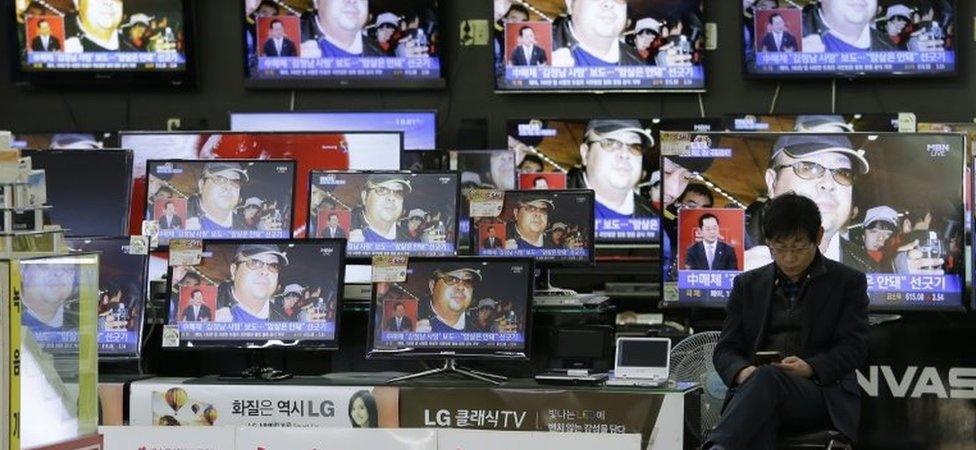
The case has attracted intense interest in South Korea
North Korea hasn't said anything about the death and it's highly unlikely it ever will.
All we have heard about what Pyongyang wants is from Malaysian officials, who have said they will turn the body over if a formal written request is made.
Instead, the focus in Pyongyang this week has been on the 75th anniversary celebrations of the current leader's father, Kim Jong-il.
In North Korea's secretive regime, unanswered questions are a way of life.
- Published15 February 2017
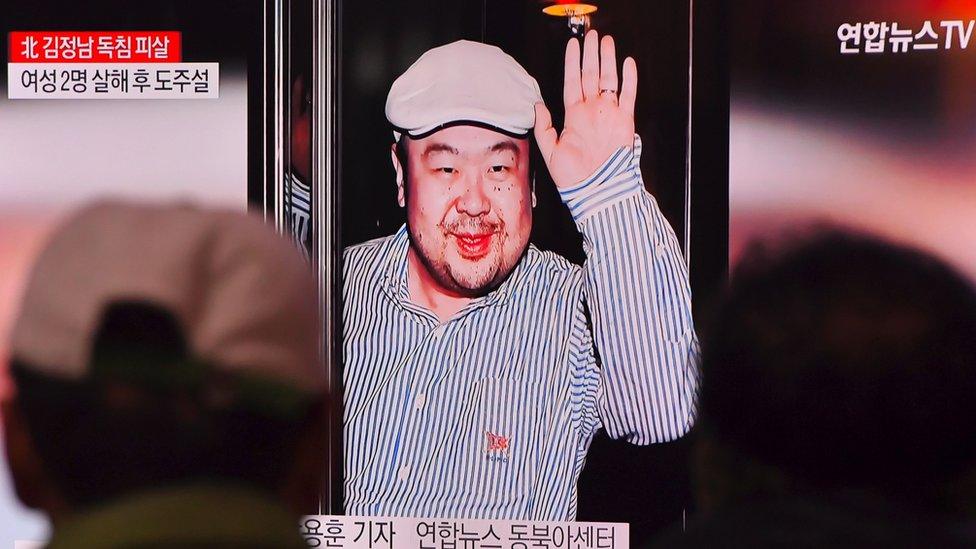
- Published14 February 2017
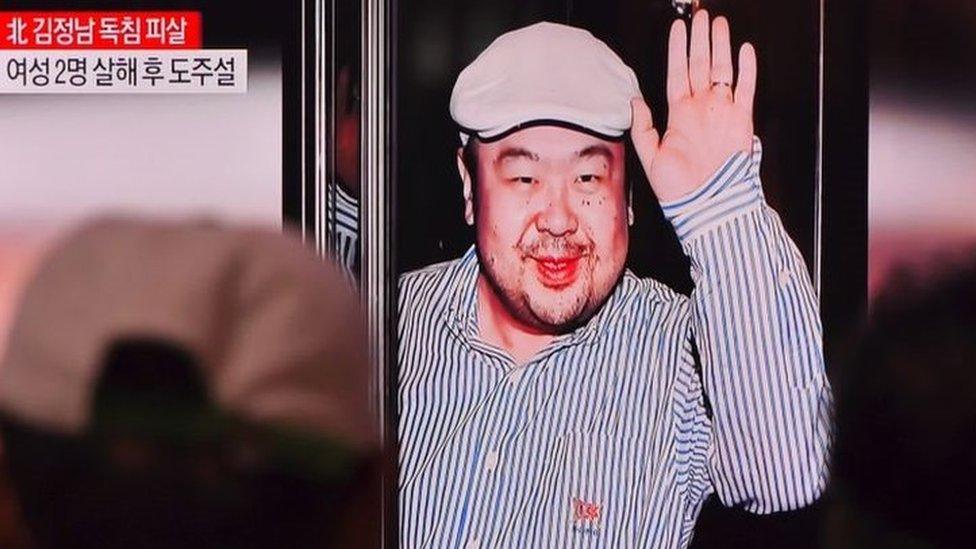
- Published14 February 2017
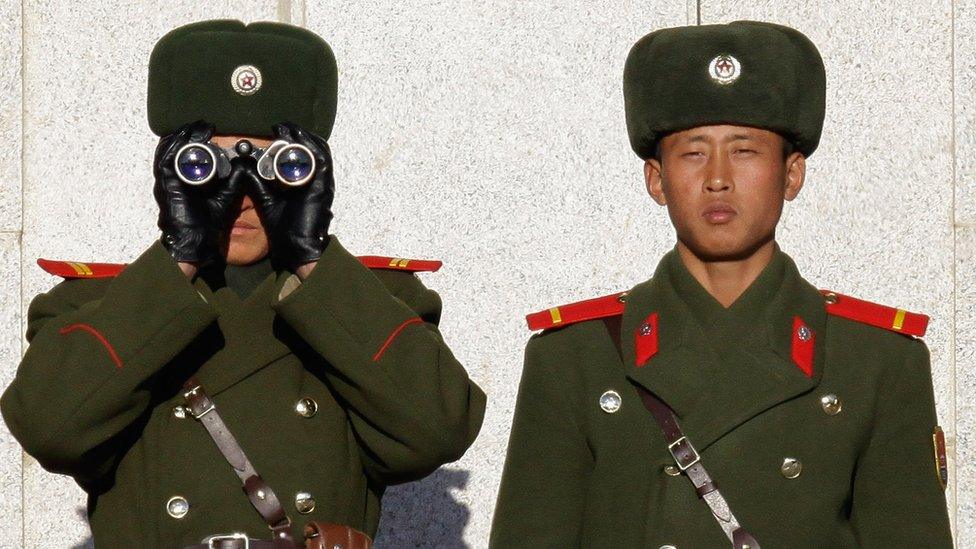
- Published13 December 2013